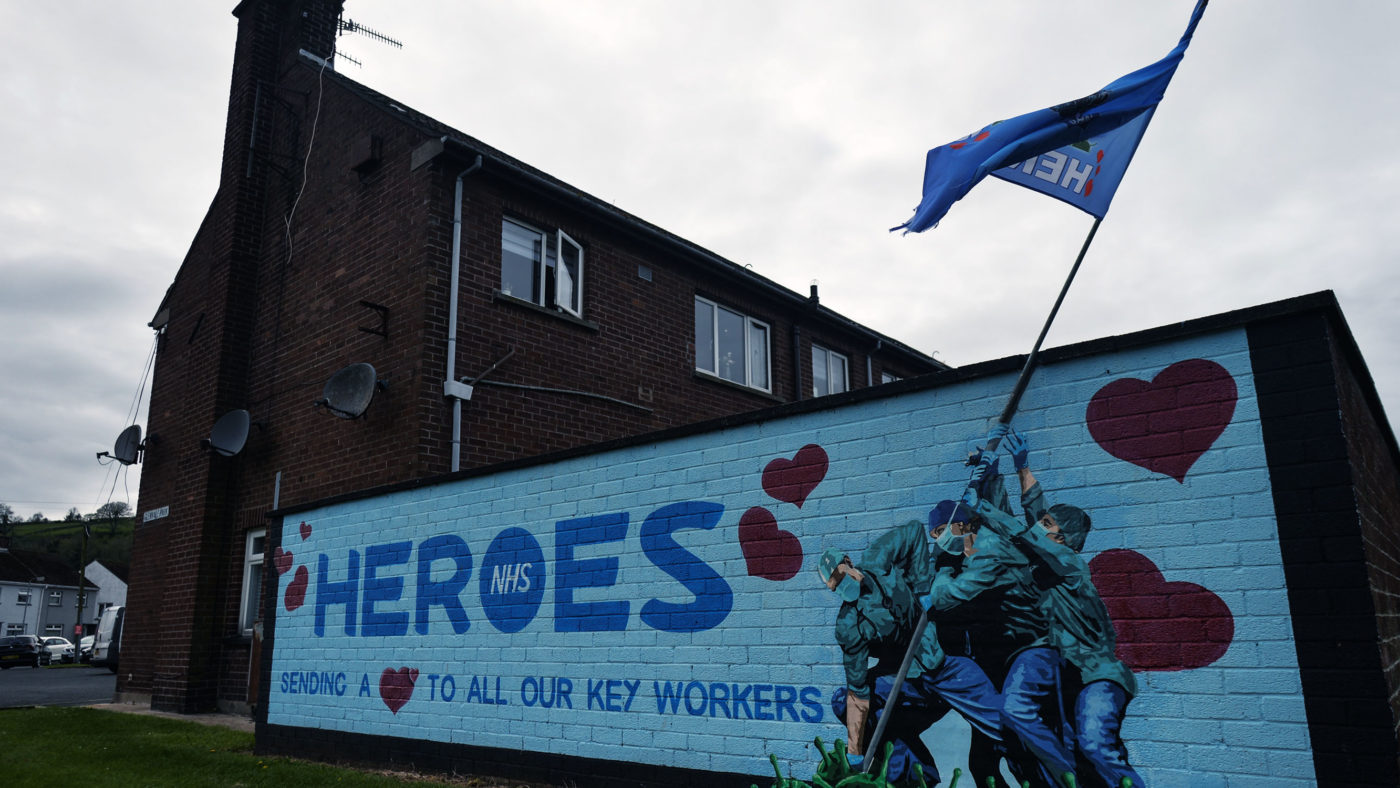Covid-19 has been damaging for many of the professions we have relied on most to get us through the pandemic. Recent furores about modest pay increases and freezes for NHS workers, teachers and the police are heightened by an assumption that the people who work in these industries are, somehow, different from others who toil away in less virtuous jobs. Perhaps only an increase that would have made Croesus blush would have satisfied the BMA, or the teaching and police unions.
We continue to romanticise these professions, preferring to see them as something finer, like vocations (or, worse, as ‘callings’), instead of the salaried positions they really are. In doing so we do them a disservice and limit their potential to improve. We like to think of nurses and doctors, teachers and police officers, as essentially altruistic, motivated not by money, but out of a desire to help others.
There are, of course, some differences in public perceptions of these roles. The police undoubtedly come in for more criticism than teachers or nurses, in part thanks to high-profile scandals like the Hillsborough tragedy and Stephen Lawrence’s murder, or the more recent global outcry about the murder of George Floyd. But there remains a perception that most officers join the force primarily out of a desire to serve the public.
This is frequently true, but many of those in these professions undoubtedly went into them because they are reasonably secure, quite well paid, with good pensions and other perks (including being relatively non-selective and with having short training periods). Nobody begrudges them any of this (except perhaps for the long holidays teachers enjoy), but very few are prepared to discuss it openly if it means it risks taking the shine off numerous halos.
If you do have the temerity to state the obvious – namely that a job like teaching is not unique in being demanding – then, as headteacher Michael Merrick recently found out on Twitter – you risk (at best) being accused by other teachers of being ‘misguided and uneducated’, or (rather worse) of being ‘starved of attention’ and of being an ‘arsehole’; you are likely to be dragged into endless subtweeted debates about how undervalued teaching is (something which it seems only humblebragging teachers seems to say), and how teachers have to work throughout their holidays (they don’t).
And, of course, how poorly paid it is (it is to begin with, and then it can eventually be very well paid). Worse, you are accused of being ‘divisive’, which is a particularly loaded term because it comes with the innately political assumption that entire blocs of workers must think and behave as one. The old socialist saw, that united we stand, divided we fall, is alive and kicking (mostly others) on Twitter, and anything, even a tweet which questions how uniquely difficult the job is, is unacceptable, a betrayal of the faith.
It is this manichean, black-and-white view of these professions which has hardened through the pandemic. The clap for carers, like any pre-planned, spontaneous and largely symbolic act, deafened many to the systemic flaws within the NHS. It silenced debate, but it also spread outwards, cloyingly, holding within its suffocating hug other key workers who felt empowered by the new esteem they were held in by the public.
Traditionally, many nurses, teachers, and police officers have felt undervalued (unlike those amongst them who are the same but different – the doctors, headteachers, and chief constables). Few among them now can say this is still the case. But what has changed over the course of the pandemic is that these professions increasingly seem to believe their own press or, worse, the echo chamber encomiums on Twitter, and have become overly sensitive to any criticism, seeing it as a personal affront, rather than something which is not only constructive, but is actually necessary if the institutions they work for can improve. In short, it should be possible to criticise the professions without it being taken as an attack on individuals. Some, like Robert Peston, quickly find you can’t.
The unions, which should represent their members, too often indulge them, infantilising through misrepresentation, and refusing to accept anything other than adulation from others as tolerable. At its most extreme end the biggest teaching union, the NEU, have campaigned to both keep schools closed and to give teachers a significant pay increase, which must be a rare case of arguing for more money for doing less work. Predictably, few teachers had much problem with their union taking this position.
Any profession which is incapable of accepting criticism becomes increasingly less effective and soon ends up being at odds with the changing society it serves, viewing all attempts at reform with suspicion. The consequences are real and disastrous because anyone who has had any dealings with the police, schools or the NHS know that they are far from perfect, and are quite capable of getting things wrong, and quite often disastrously so.
Despite all evidence to the contrary we persist in claiming the NHS is world class when it is only mediocre compared to other rich nations’ health services. This isn’t just incorrect, but seriously damaging. By insisting on defending the NHS and everyone who works for it, we actually make improvement difficult and keep its failings in place. The same goes for teaching: unless we accept the weaknesses of our educational system we will unintentionally limit the prospects of too many of our children.
It may be deeply unfashionable to say so, but hospitals and schools are not run for those who work in them: they exist for patients and pupils but it is they, too often, whose voices are ignored by those who seek to suffocate debate and kill through kindness.
Click here to subscribe to our daily briefing – the best pieces from CapX and across the web.
CapX depends on the generosity of its readers. If you value what we do, please consider making a donation.


